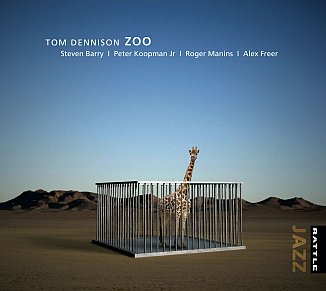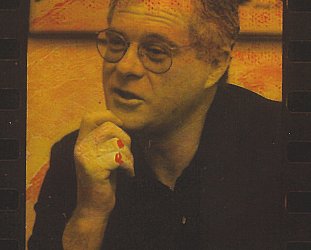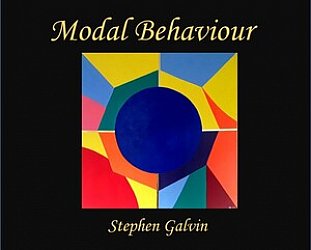Graham Reid | | 1 min read
Tom Dennison: The Secret History of Islands

While it is admirable that jazz musicians put out their own albums (especially in New Zealand where the market is small), it is even more so that any start-up label -- especially in New Zealand -- would firmly get behind an art form which has an audience which redefines the word "minority".
Rattle -- not a start-up label since it has been going 20 years, but only more recently recording and releasing jazz -- has already established a signature style in the same way Blue Note, Verve, Concord, ECM and others did all those decade ago: buy keeping the quality high, the roster of artists changing but core players returning for different sessions, the packaging enticing and -- most inportantly -- keeping the music coming.
Nothing speaks of a scene more than regular releases.
The Rattle Jazz imprint has certainly kept all those ends of the bargain going, and on this debut under bassist Dennison's name are seven post-bop tracks which are classy, refined, fluid, democratically distributed among the soloists and at times usefully challenging.
This is a young band but has already accrued considerable experience, and not just in jazz. Dennison has played with Alan Broadbent and Mike Nock (two very different learning experience) and has played in a trio and quartet with guitarist Peter Koopman for many years. He was also in a high school band with pianist Steven Barry who is here, then later played in Frank Gibson's Hardbopmobile and more recently spent time in New York studying and playing.
Drummer Alex Freer has a sideline in the excellent rock band Artisan Guns (and as a session player of rock and pop albums), saxophonist Roger Manins has appeared in numerous contexts and on Rattle previously, and Dennison played in his Quintet.
They have been schooled in studios and on stage, and known their way around standards. But here they stretch themselves from midnight blue ballads (Cat where Manins' warm and woody-sounding sax takes you to the window to look down on rain-splashes streets) to vigorous and angular pieces (Llama which Barry opens with spare lines and opens out into cleverly rhythmic pulses and stop-start punctuations).
Throughout you can hear myriad, subtle influences (fluid guitarists like John Abercrombie, minimalism which opens Antelope before it sprints away over driving drums, bass and Barry's flighty piano solo, hard-bop honking and energy from Manins on the opener Stingray) but the album is more than the sum of these parts.
This is an assured, often swinging, constant revelation and it closes with the thoughtful, romantically melancholy Secret History of Islands -- a piece which you'd hope might point to another album of similarly refined conception from some or all of these players.
They seem to have a label on which to do it.
Like the sound of this? Then check out this.







post a comment